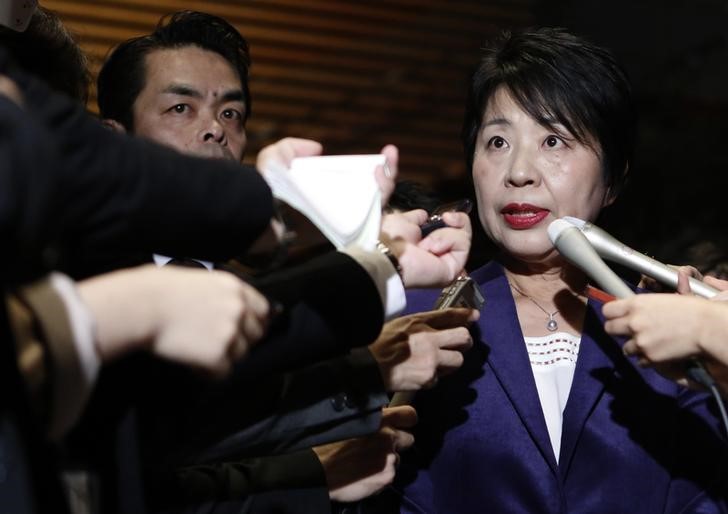TOKYO (Reuters) - Two Japanese ministers denied wrongdoing on Friday after media said they appeared to have received improper funding, the latest embarrassment for Prime Minister Shinzo Abe, three of whose ministers have quit over scandals since October.
Abe returned to power for a rare second term with a 2012 election win, promising to reboot an economy plagued by deflation, and his ruling coalition cruised to another big election win in December.
Political analysts say although Abe still enjoys solid voter support, his government would inevitably be hit hard if further revelations of improper funding or other scandals cropped up and forced any more ministers to step down.
The latest reports involve the environment and justice ministers.
The Asahi newspaper said a branch of Abe's Liberal Democratic Party (LDP) headed by Environment Minister Yoshio Mochizuki, collected 1.4 million yen ($11,724) from a logistics company which had received government funds.
That would violate a law banning a company from making political donations within a year of an award of government subsidies.
"I received the donation from the company without knowing it was receiving subsidies and I think it was not illegal," said Mochizuki. "I have returned the 1.4 million yen, considering morality."
Government spokesman Yoshihide Suga defended the minister, saying he had returned the funds as soon as he found out there was a possible conflict.
Private broadcaster TV Asahi said an LDP branch headed by Justice Minister Yoko Kamikawa got 60,000 yen a month in political donation from the same company in 2013.
Kamikawa also said she was not aware the company was getting subsidies.
On Thursday, Education Minister Hakubun Shimomura denied a report that he illegally received political funds, just days after the farm minister resigned over similar allegations.
Political commentator Atsuo Ito said the risk for Abe was growing.
"Fundamentally, there are still a lot of hopes for his economic policy and his support rates are still high, but with so many of these things piling up, the chance of damage will increase," Ito said.
"If another person quits his administration is likely to come under quite a bit of fire."
Abe's first term between 2006 and 2007 was marred by resignations, a pension scandal and a minister's suicide.
This time, Abe's ruling bloc enjoys comfortable majorities in both chambers of parliament and he maintains party support.

"LDP lawmakers still believe they can win elections and they can garner voter support with Abe at the helm," said Mikitaka Masuyama, professor at the National Graduate Institute for Policy Studies.